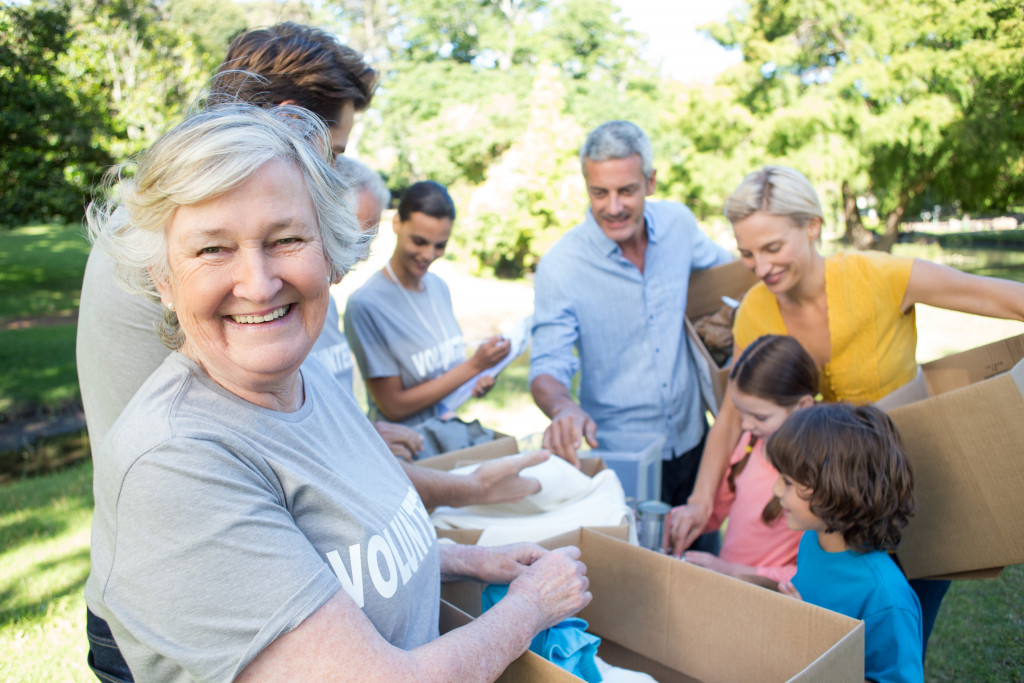As a nonprofit organization, you may wonder how to best contribute to protecting your local neighborhood. There are many ways that nonprofits can contribute to making their neighborhood safer and more enjoyable places to live, but here are some good examples.
Liaison with Law Enforcement
One way that your nonprofit can contribute to protecting your local neighborhood is by serving as a liaison between law enforcement and the community. This can be done in a number of ways, such as organizing community meetings with law enforcement, distributing educational materials about crime prevention, or working with law enforcement on special projects in the community.
By serving as a liaison between law enforcement and the community, your nonprofit can help build trust and understanding between the two groups, ultimately reducing crime. For example, if the community feels that law enforcement is more accessible and approachable, they may be more likely to report a crime or provide information about crimes.
Moreover, fostering a relationship between law enforcement and the community can also lead to more effective crime prevention strategies since the two groups will be better able to communicate and coordinate their efforts.
Community Outreach Programs
Another way for your nonprofit to contribute to protecting your local neighborhood is by organizing and supporting community outreach programs. These can include things like providing access to job training, offering support to crime victims, or providing materials and resources to help prevent people from becoming involved in crime.
These sorts of community outreach programs can be a powerful tool for protecting your local neighborhood, as they work to prevent crime before it occurs by providing people with the skills and support they need to lead successful lives.
Moreover, these programs can also help build a greater sense of community and belonging, which can effectively deter crime. Not only that, but the presence of a vibrant and supportive community will likely make the neighborhood a more desirable place to live, which may attract new residents and businesses.
Neighborhood Watch Program
Another way that your nonprofit can contribute to protecting your local neighborhood is by organizing or participating in a neighborhood watch program. Neighborhood watch programs are groups of neighbors who work together to report suspicious activity and keep an eye out for criminal activity in their area.
By organizing or participating in a neighborhood watch program, your nonprofit can help make your community less attractive to criminals and help keep your neighbors safe. For instance, if criminals know that someone is regularly watching for suspicious activity, they may be less likely to commit a crime in the area.
In addition, neighborhood watch programs can also help build a sense of community and trust among neighbors, which can further reduce crime by making people more likely to report any criminal activity they witness.

Encourage the Installation of Fences
Your nonprofit can also contribute to protecting your local neighborhood by encouraging fence installation. This can effectively deter criminals since fences make it more difficult for them to access homes or businesses.
In addition, fences can also help reduce illegal dumping, which is a common issue in many neighborhoods. For example, privacy fences can be used to separate areas of a neighborhood where illegal dumping is common, thus reducing the attractiveness of that area for people looking to dump their waste illegally.
By encouraging the installation of fences, your nonprofit can help make your local neighborhood safer. Also, since fences can be relatively inexpensive, they are often a good investment for homeowners or businesses that want to protect their property from criminals.
Community Cleanup Days
Finally, your nonprofit can contribute to protecting your local neighborhood by organizing community cleanup days. Community cleanup days are opportunities for volunteers to come together and clean up litter and debris in their community.
This not only makes the community look more attractive but also helps reduce hiding places for criminals. For instance, if they know that there are regular people around cleaning up the neighborhood, it may discourage them from committing a crime.
Organizing community cleanup days can also be an effective way to build a stronger sense of community and pride in your local area. Plus, it’s a great opportunity for neighbors to come together and work towards making their neighborhood a safer and better place to live.
There are many ways that a nonprofit can contribute to protecting your local neighborhood. From organizing or participating in a neighborhood watch program to encouraging fence installation and organizing community cleanup days, these efforts can help make the local area safer for everyone. So why not get involved and help protect your community today?

